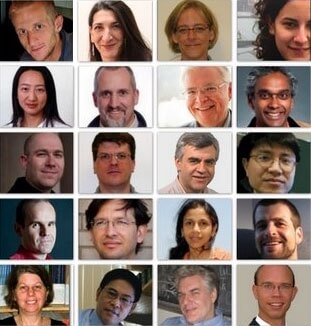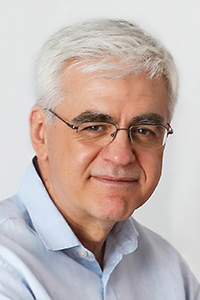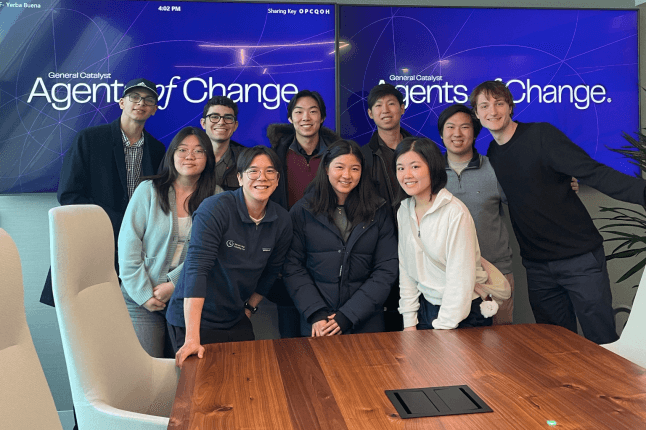News
Researchers from five Massachusetts universities are collaborating on research projects that use high-performance computing to solve problems in basic and applied science and advance the capabilities of supercomputing systems.
Cambridge, Mass. - February 3, 2012 - Seven Harvard-affiliated researchers will receive grants to support collaborative projects in high-performance computing.
The seed grants, awarded by the Massachusetts Green High Performance Computing Center (MGHPCC) under construction in Holyoke, Mass., are intended to support projects in computational science that advance basic knowledge, create new practical applications, and accelerate the development of faster and more energy-efficient computing systems.
Seven projects, involving 24 researchers from Harvard, Boston University, Massachusetts Institute of Technology, the University of Massachusetts (UMass), and Northeastern University, have been selected to receive a total of $600,000.
In one project, Efthimios "Tim" Kaxiras, John Hasbrouck Van Vleck Professor of Pure and Applied Physics at the Harvard School of Engineering and Applied Sciences (SEAS), will apply computational science to the basic study of materials.
Collaborating with two researchers from Northeastern, Kaxiras will create multiscale models of tiny metal particles to study their dielectric and magnetic properties. Understanding the behavior of metals at this level will assist the development of precisely engineered materials with customized electromagnetic and physical properties.
Kaxiras is the director of the Institute for Applied Computational Science at SEAS.
Cris Cecka, a lecturer on applied computational science at SEAS, will work with researchers at Boston University and UMass Amherst to build an open-source library of algorithms that use a technique called the fast multipole method to simplify and accelerate the computation of complex problems.
The codebase Cecka's team develops will speed up the generation of various models and simulations that are used in physics, such as visualizations of molecular behavior, fluid dynamics, and electromagnetic waves. They hope to make it compatible with several different supercomputing platforms.
Other Harvard-affiliated researchers receiving grants include Alán Aspuru-Guzik, associate professor of chemistry and chemical biology; Patricia Ellen Grant, of Harvard Medical School (HMS) and Children’s Hospital Boston; Yiping Shen, of Children's and Massachusetts General Hospital (MGH); Bai-Lin Wu, of HMS and Children's; and James F. Gusella, of HMS and MGH.
Aspuru-Guzik plans to study the energetics of photosynthesis in plants in order to improve the efficiency of solar cells. Grant, an expert in radiology, will work to automate medical imaging analysis. Shen, Wu, and Gusella are part of a larger project to develop a massive genomic database.
For more information, see the original press release by MGHPCC.
###
About the Massachusetts Green High Performance Computing Center:
The Massachusetts Green High Performance Computing Center (MGHPCC) isa ground breaking collaboration of five of the state’s most research-intensive universities, state government and private industry—the most significant collaboration among government, industry and public and private universities in the history of the Commonwealth, and the first facility in the nation of its kind.
The MGHPCC facility provides the state-of-the-art computational infrastructure, indispensible in the increasingly data-rich environment of the post-genomic revolution. Today, virtually no major breakthrough in science—be it be designing a new drug, developing new materials for clean energy, or predicting climate change—can take place without computation, which has become the “third leg” of scientific discovery, along with theory and experimentation. With this increased role of computation, the MGHPCC represents a critical piece of infrastructure that will allow the Commonwealth to attract and retain the very best scientists, secure federal and private funding to support scientific research in the state, and continue to fuel the state’s innovation economy.
Topics: Computer Science, Applied Physics
Cutting-edge science delivered direct to your inbox.
Join the Harvard SEAS mailing list.
Scientist Profiles
Efthimios Kaxiras
John Hasbrouck Van Vleck Professor of Pure and Applied Physics and of Applied Mathematics
Press Contact
Caroline Perry




